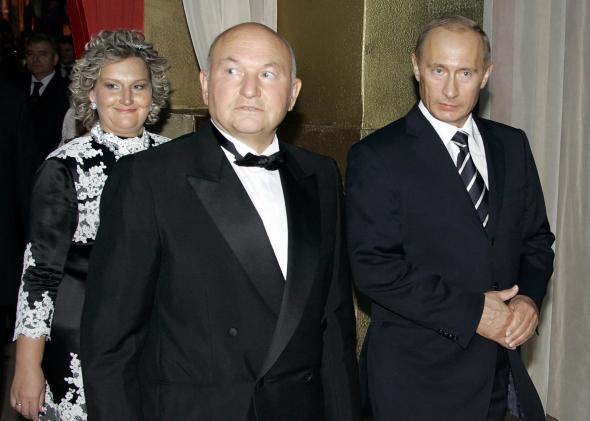Charles King’s 2009 dispatch from Sevastopol, “City on the Edge,” is well worth rereading in light of recent events. Among other things, it takes note of an overlooked character in the long runup to the current Crimean drama:
For years the mayor of Moscow, Yuri Luzhkov, has made Crimea and Sevastopol a pet project. He has invested tens of millions of dollars in local industry, politics and public facilities, stoking the sense of allegiance to Russia and challenging the former Yeltsin Administration’s commitment to Crimea’s permanent status inside Ukraine. Tens of thousands of Crimean inhabitants have reportedly taken Russian citizenship. Airlines connect Sevastopol and other Crimean cities with Moscow and St. Petersburg, carrying holiday travelers, business people, seasonal workers and military personnel between the old imperial capitals and their former provincial outposts.
Luzhkov is a fascinating figure. One of the founders of the ruling United Russia party, he was mayor of Moscow from 1992 to 2010. During that time, the city transformed from the drab and demoralized capital of a collapsed empire into a glittering boomtown. Russia’s new oil wealth funded dozens of new apartment complexes, shopping centers, and skyscrapers, many of which just happened to be built by the construction company owned by his wife, Yelena Baturina, Russia’s only female billionaire. During the last years of his tenure, the socially conservative Luzhkov was probably best known outside Russia for banning gay pride parades, which he referred to as “satanic,” and decorating the city with images of Joseph Stalin.
(Fun fact for anyone playing the six-degrees-of-Yury-Luzhkov game at home: Baturina’s brother Viktor, a former multimillionaire jailed last year for embezzlement, is the ex-husband of Yana Rudkovskaya—the ever-present wife of figure skater Yevgeny Plushenko.)
Though an influential power broker within United Russia, by 2010 Luzhkov had become a liability. The corruption scandals in the city government became too blatant to sweep under the rug, he was pilloried for going on vacation while the city was choked with smog from nearby wildfires, and he had taken to publicly criticizing then-President Dmitry Medvedev. After what seemed like a Kremlin-orchestrated media campaign against him, Luzhkov was unceremoniously fired on his birthday.
Luzhkov had a relatively soft landing considering the corruption allegations against him. He was appointed dean of the International University in Moscow shortly after his sacking.
In addition to leaving a formidable legacy in Moscow, Luzhkov also made his mark on Russian foreign policy—advocating the restoration of Russia’s regional influence and encouraging separatist sentiment among ethnic Russians living in neighboring countries. For years, he was the primary patron of the separatist enclaves of South Ossetia and Abkhazia, investing millions of rubles of his wife’s money to develop them. But Crimea, which he argued was rightfully Russian territory and was the victim of cultural suppression from Kiev, may have been his biggest passion project.
In 2008, the New York Times reported that in Sevastopol, Luzhkov “has constructed a branch of Moscow State University, Russian Orthodox cathedrals, schools, a sports complex and other facilities. Military personnel with the Black Sea fleet refer to their housing as Luzhki because Mr. Luzhkov built thousands of apartments for them.” Just this week, even in the midst of the conflict, Moscow formally launched a project to build a bridge between Crimea and Russia’s Black Sea coast, an idea that Luzhkov had championed during the 1990s.
Ukraine’s Security Service went as far as to bar Luzhkov from entering the country in 2008 due to “actions that threaten Ukraine’s national interests and territorial integrity.” He was eventually able to return under Yanukovych’s government.
Given that in the few months, Russia has passed a nationwide law banning “gay propaganda,” seen the culmination of a massive and costly construction project in Sochi, and seemingly retaken Crimea, it’s interesting to reflect on the fact that while Luzhkov has departed the Russian political scene, probably permanently, the country’s politics are heading in a direction he would likely wholeheartedly support.
